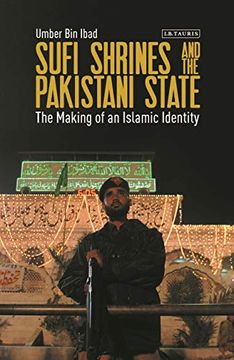Sufi Shrines and the Pakistani State: The end of Religious Pluralism (Library of Islamic South Asia) (en Inglés)
Reseña del libro "Sufi Shrines and the Pakistani State: The end of Religious Pluralism (Library of Islamic South Asia) (en Inglés)"
After the creation of Pakistan in 1947, Sufi shrines became highly contested. Considered deviant and `un-Islamic', they soon fell under government control as part of a state-led strategy to create an `official', more unified, Islamic identity. This book, the first to address the political history of Sufi shrines in Pakistan, explores the various ways in which the postcolonial state went about controlling their activities. Of key significance, Umber Bin Ibad shows, was the `West Pakistan Waqf Properties Ordinance', a governmental decree issued in 1959. Formed when General Ayub Khan assumed the role of Chief Martial Law Administrator, this allowed the state to take over shrines as `waqf property'. According to Islamic law, a waqf, or charitable endowment, had to be used for charitable or religious purposes and the state created a separate Auqaf department to control the finances and activities of all the shrines which were now under a state sponsored waqf system. Focusing on the Punjab - famous for its large number of shrines - the book is based on extensive primary research including newspapers, archival sources, interviews, court records and the official reports of the Auqaf department. At a time when Sufi shrines are being increasingly targeted by Islamist extremists, who view Sufism as heretical, this book sheds light on the shrines' contentious historical relationship with the state. An original contribution to South Asian Studies, the book will also be relevant to scholars of Colonial and Post-Colonial History and Sufism Studies.

